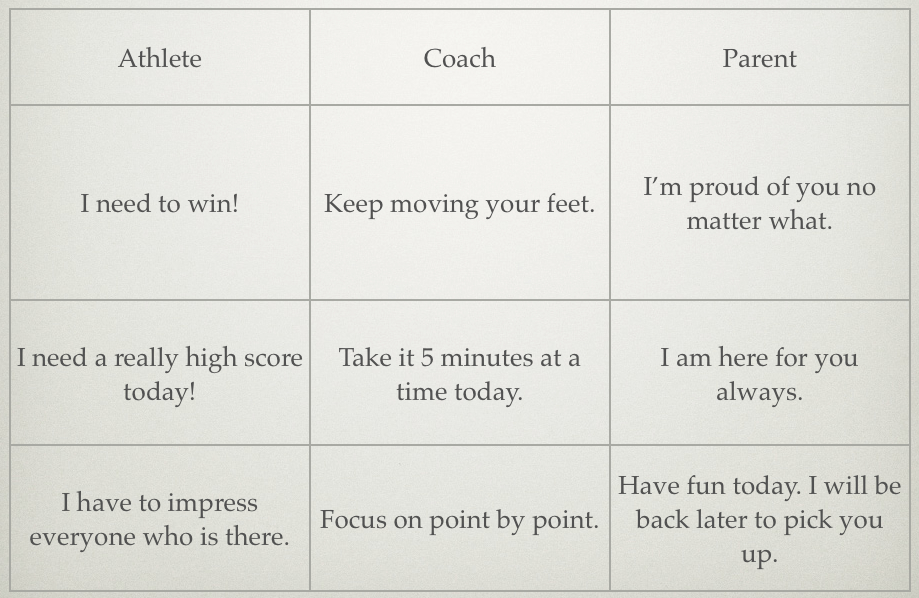Research has consistently shown that expectations often cause anxiety, especially when the athlete feels that his or her skills do not match up with the expected results. This can lead to an increase in pre-competition and competition anxiety, often causing poor performance and over time may even cause burnout. Many coaches and parents are unknowingly at fault when it comes to producing anxiety among athletes.
For an athlete to improve performance he or she must first build confidence and focus on the things that they have the most control over. If the athlete has low confidence then he or she should focus on the smallest thing that they feel they can do well; even if it is to simply smile or go out and compete.
Confidence is mostly produced by the results an athlete receives. It’s no wonder that setting small goals help athletes produce more confidence because the athlete can see and experience more positive results.
Below are three examples of how coaches and parents can help set the right expectations for anxious athletes.

The first part of the table above [Athlete] shows three examples of anxious athletes who are focused on expectations that they feel they need but exceed their current level of confidence.
The second part of the table [Coach] shows three examples of how coaches can reinforce small goals to help calm the athlete and center their focus on things that are easier to control but still critical to peak performance.
The third part of the table [Parent] shows three positive responses to athletes. Notice how every response avoids giving tips of instructional feedback on how they should perform. In fact, each example shows the parent avoiding feedback related to expectations and instead focuses on positive emotional support. This helps the athlete to focus on him or herself more easily and increase the likelihood of success.
Take the SPMI Mental Toughness Evaluation.
Patrick Alban B.S., M.S.
SPMI President
*This tip is just a small part of how to improve motivation. To get complete results on motivation and other parts of your game contact SPMI today.
